
Data-ism
¥166.09
By one estimate, 90 percent of all of the data in history was created in the last two years. In 2014, International Data Corporation calculated the data universe at 4.4 zettabytes, or 4.4 trillion gigabytes. That much information, in volume, could fill enough slender iPad Air tablets to create a stack two-thirds of the way to the moon. Now, that's Big Data.Coal, iron ore, and oil were the key productive assets that fueled the Industrial Revolution. The vital raw material of today's information economy is data.In Data-ism, New York Times reporter Steve Lohr explains how big-data technology is ushering in a revolution in proportions that promise to be the basis of the next wave of efficiency and innovation across the economy. But more is at work here than technology. Big data is also the vehicle for a point of view, or philosophy, about how decisions will be and perhaps should be made in the future. Lohr investigates the benefits of data while also examining its dark side. Data-ism is about this next phase, in which vast Internet-scale data sets are used for discovery and prediction in virtually every field. It shows how this new revolution will change decision making by relying more on data and analysis, and less on intuition and experience and transform the nature of leadership and management. Focusing on young entrepreneurs at the forefront of data science as well as on giant companies such as IBM that are making big bets on data science for the future of their businesses, Data-ism is a field guide to what is ahead, explaining how individuals and institutions will need to exploit, protect, and manage data to stay competitive in the coming years. With rich examples of how the rise of big data is affecting everyday life, Data-ism also raises provocative questions about policy and practice that have wide implications for everyone.The age of data-ism is here. But are we ready to handle its consequences, good and bad?
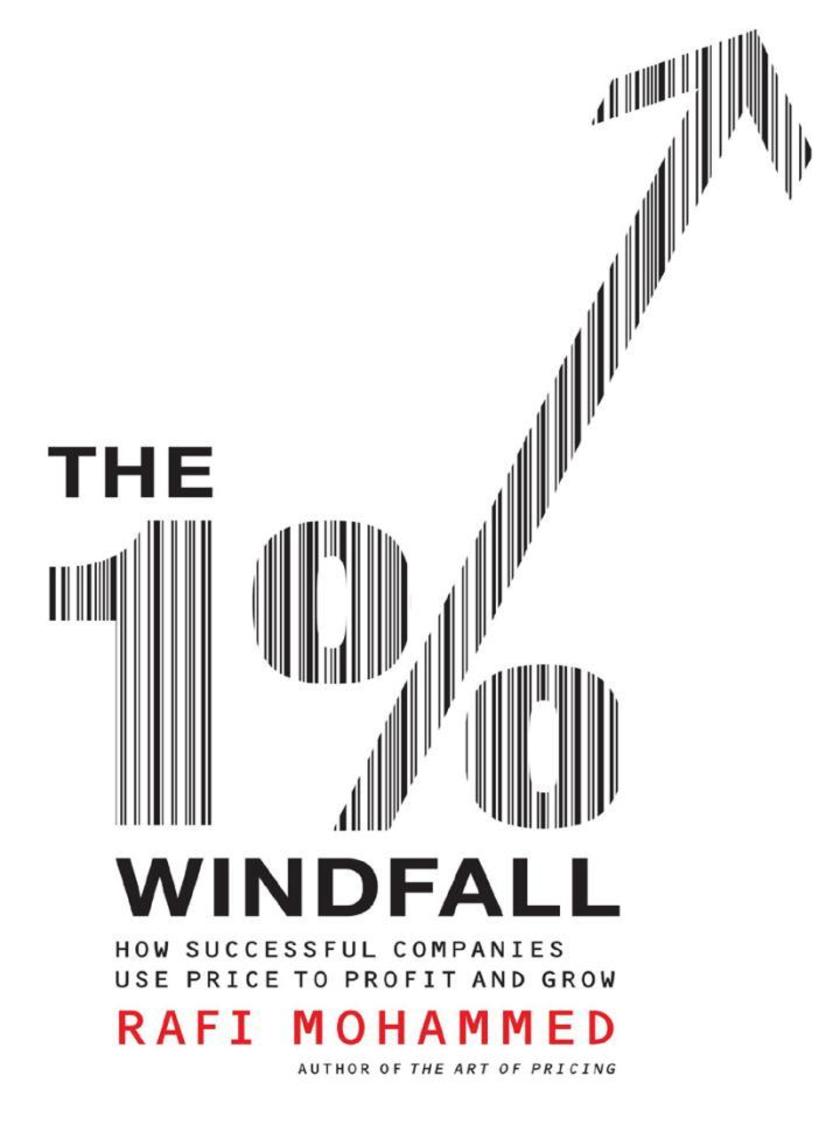
The 1% Windfall
¥166.09
Leading pricing expert Rafi Mohammed shows businesses how to reap a financial windfall and foster growth using the underutilized and often overlooked strategy of setting prices. The 1% Windfall reveals how modest incremental changes to an everyday business practice pricing can yield significant rewards. Illustrating the power of pricing, a study of the Global 1200 found that if companies raised prices by just 1%, their average operating profits would increase by 11%. Using a 1% increase in price, some companies would see even more growth in percentage of profit: Sears, 155%; McKesson, 100%; Tyson, 81%; Land O'Lakes, 58%; and Whirlpool, 35%.The good news is that better pricing is more than simply raising prices. Instead, the key is to offer customers a variety of pricing options. This strategy is win-win: profits to companies and choices for consumers. But how do executives and managers set the right priceUnderpinned by sound empirical research and real-life anecdotes, The 1% Windfall addresses this fundamental question. This book offers guidelines that any company whether a multinational conglomerate, a small business, or even a nonprofit can follow to create a comprehensive pricing strategy for any product or service. In addition, these versatile techniques and tools provide solutions to avert a slump in a recession, offset the impact of inflation, or battle a new competitor. The result is a mind-opening, clear blueprint for com-panies to price for profit and growth.
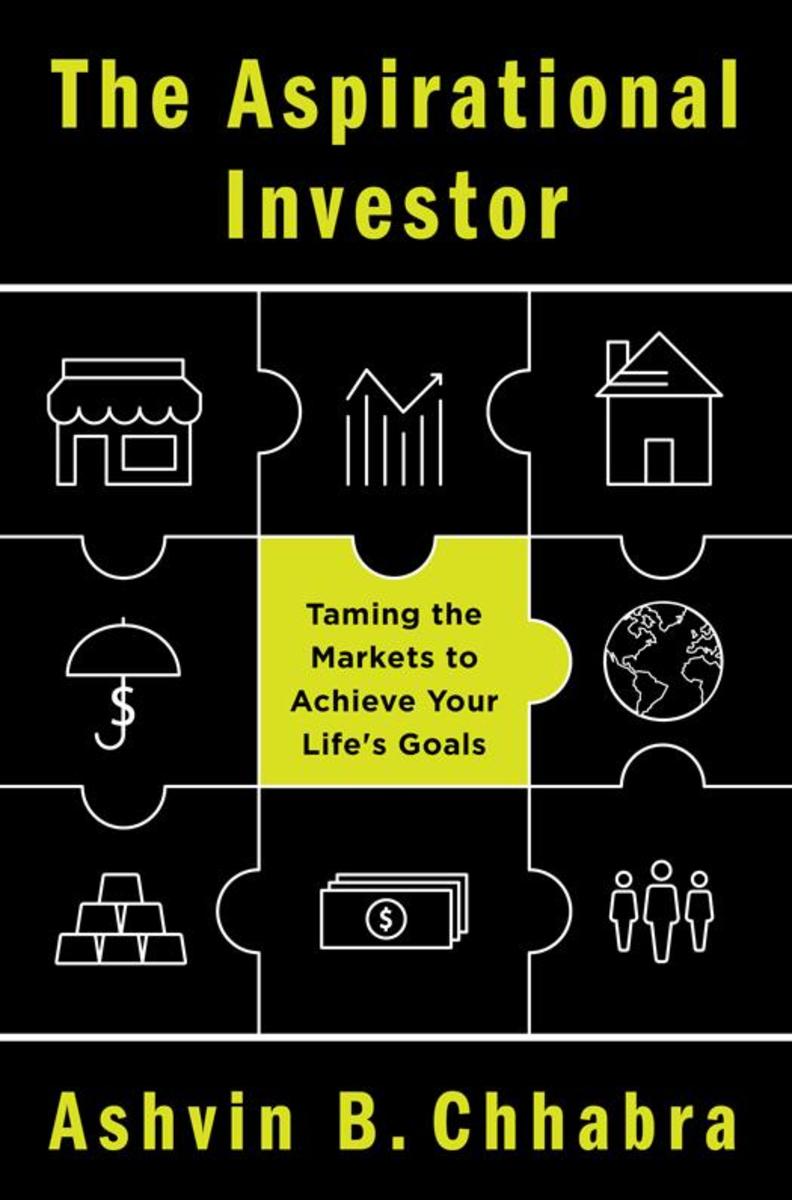
The Aspirational Investor
¥166.09
Why are otherwise smart and competent people such lousy investorsIndividual investors give up as much as two-thirds of their potential investment returns in misguided efforts to beat the market and most don't even realize it.Ashvin B. Chhabra, chief investment officer of one of the world's largest wealth management firms, explains that an important idea has gotten lost amid the relentless pursuit of investment returns. Rather than trying to beat the market, your primary goal should be to construct an investment strategy that creates a solid safety net and enables you to pursue your dreams and aspirations.With no more guarantee of lifelong jobs or pensions, all of us bear the burden of investing wisely. But many of us focus on the wrong set of investment activities, such as identifying the next great start-up or star fund manager, or simply beating a market benchmark. Even the standard framework for investing, modern portfolio theory, offers an incomplete solution. Meanwhile, the grand debates in finance, such as indexing versus active management, prioritize the wrong set of issues.We need a framework that shifts the focus of investment strategy from portfolios and markets to individuals and the objectives that really matter: protection against unexpected financial crises or retirement planning. Whatever matters most to you paying for your kid's education, starting your own business, endowing your favorite charity, or traveling the world you need a road map to help you achieve both your essential and aspirational goals.In The Aspirational Investor, Ashvin B. Chhabra outlines a groundbreaking yet intuitive approach to managing wealth, based on the identification of key goals and the careful allocation of resources and risks. The Wealth Allocation Framework will help you connect your investment portfolio with your life's goals, and accommodate the three seemingly incompatible objectives that must underpin every sound wealth management strategy: the need for financial security in the face of unknowable risks, the desire to maintain current living standards despite inflation, and the opportunity for life-changing wealth creation.Chhabra's pioneering work illuminates some surprising facts about how people get very wealthy, and reinterprets the success formulas of investing greats such as Warren Buffett and David Swensen. Chhabra also offers a novel perspective: If the markets don't really care about you, as surely they do not, then why should you spend all your time and effort trying to beat them?Raising the bar for what we should expect from our investment portfolios and from our investment advisors The Aspirational Investor is a thoughtful, practical guide for any investor, regardless of income or wealth level.

Work Like An Immigrant
¥163.09
Work Like an Immigrant: 9 Keys to Unlock Your Potential, Attain True Fulfillment, and Build Your Legacy Today is a memoir-meets-business book that offers you inspiration, hard-won guidance, and soul-searching steps and activities to build a highly fulfilling lifestyle—no matter where you come from, what career path you are on or what adversity you may have encountered in the past. Part 1: The Story traces the author’s journey from selling bread and dodging bullets on the streets of Brazil to earning millions selling cable TV and Internet services door to door, as well as building and managing record-breaking sales teams. It later explores the family crisis that inspired him to become a high-performance consultant, coach, and speaker, leading others to achieve levels of happiness and fulfillment they had never imagined possible. Part 2: Nine Steps to Health, Wealth, Happiness and Fulfillment reveals the nine-step program to dreaming big and living your purpose by taking control of your thoughts and emotions and engaging in continuous joyful execution. Here, you discover how to harness the power of your imagination, unlock hidden resources, and overcome both internal and external limitations. In addition, you gain mastery of a variety of techniques inspired by numerous self-improvement visionaries, from Napoleon Hill and Joseph Murphy to Zig Ziglar and Tony Robbins. Part 3: Principles and Practices presents the nine principles for achieving prosperity, along with twenty-eight practical techniques for envisioning success, defining your mission, transforming negative thoughts to positive action, teaming up with a mentor, shifting focus from problems to solutions, and much more.
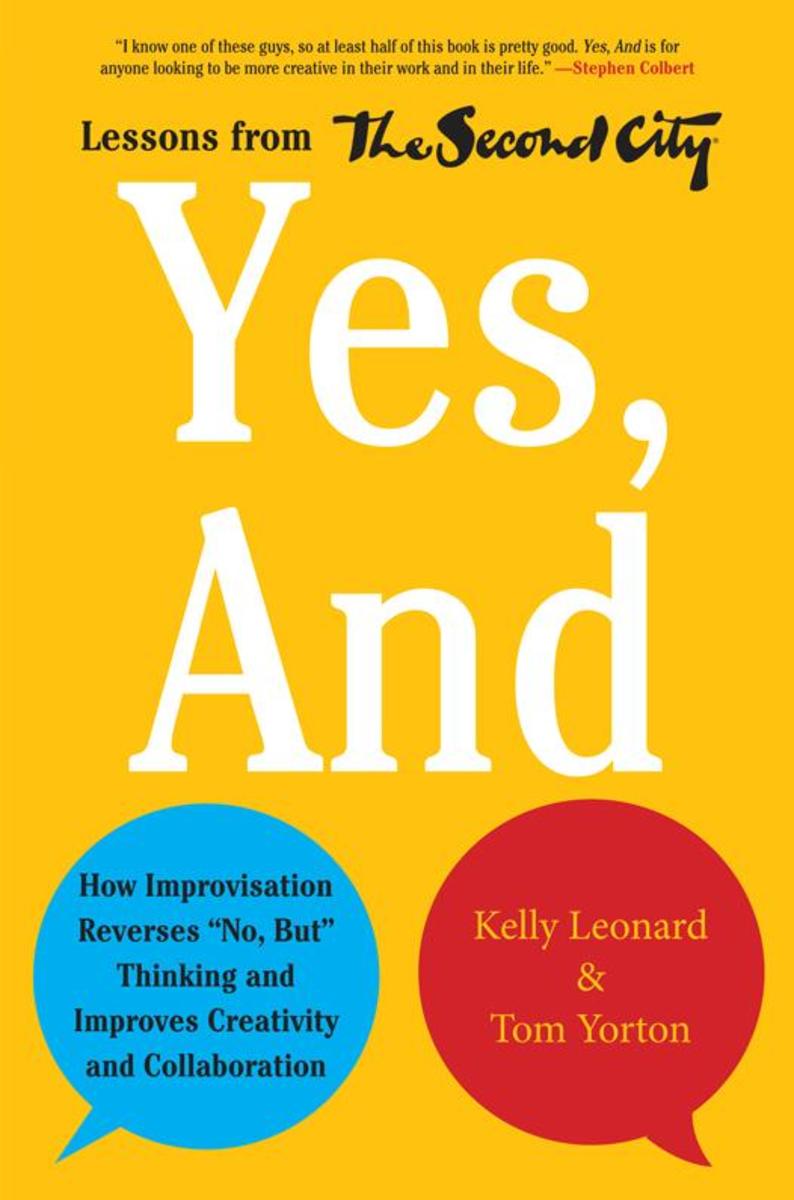
Yes, And
¥162.76
The Second City has launched the careers of celebrated comic performers such as Tina Fey and Stephen Colbert and produced award-winning content. But it's the actual improvisational process developed and honed over the years by The Second City that has become its legacy. Players master an ability to co-create in ensembles, using philosophies that celebrate a "Yes, And" approach. They embrace authenticity and failure, and espouse the idea of "following the follower," which allows any member of the team to assume a leadership role. For more than two decades, The Second City has taken these same principles in thousands of corporate clients, showing leaders how to apply the tools of improv to common business challenges. Here, for the first time, Second City executives Kelly Leonard and Tom Yorton describe how you can use the same skills that thrill audiences around the world to improve your emotional intelligence, increase creativity, and learn to pivot out of tight and uncomfortable situations. In this engaging, often humorous, and highly practical book, you will learn how to become a more compelling leader and a more collaborative follower by employing the seven elements of improv: Yes, And, by which you give every idea a chance to be acted on; Ensemble, reconciling the needs of individuals with those of the broader team; Co-creation, which highlights the importance of dialogue in creating new products, processes, and relationships; Authenticity, or being unafraid to speak truth to power, challenge convention, and break the rules; Failure, teaching us that not only is it okay to fail, but we should always include it as part of our process; Follow the Follower, which gives any member of the group the chance to assume a leadership role; Listening, in which you learn to stay in the moment, and know the difference between listening to understand and listening merely to respond. When we are fiercely following the tenets of improvisation, we generate ideas both quickly and efficiently, we weather storms with more aplomb, and we don't work burdened by a fear of failure. Even better, these qualities are fully transferable to our lives outside the office. More people are beginning to recognize what The Second City has known for a long time: In the midst of a revolution in how we learn, communicate, and work, professional success often rests on the same pillars that form the foundation of great comedy: Creativity, Communication, and Collaboration. That's where improvisation comes in.
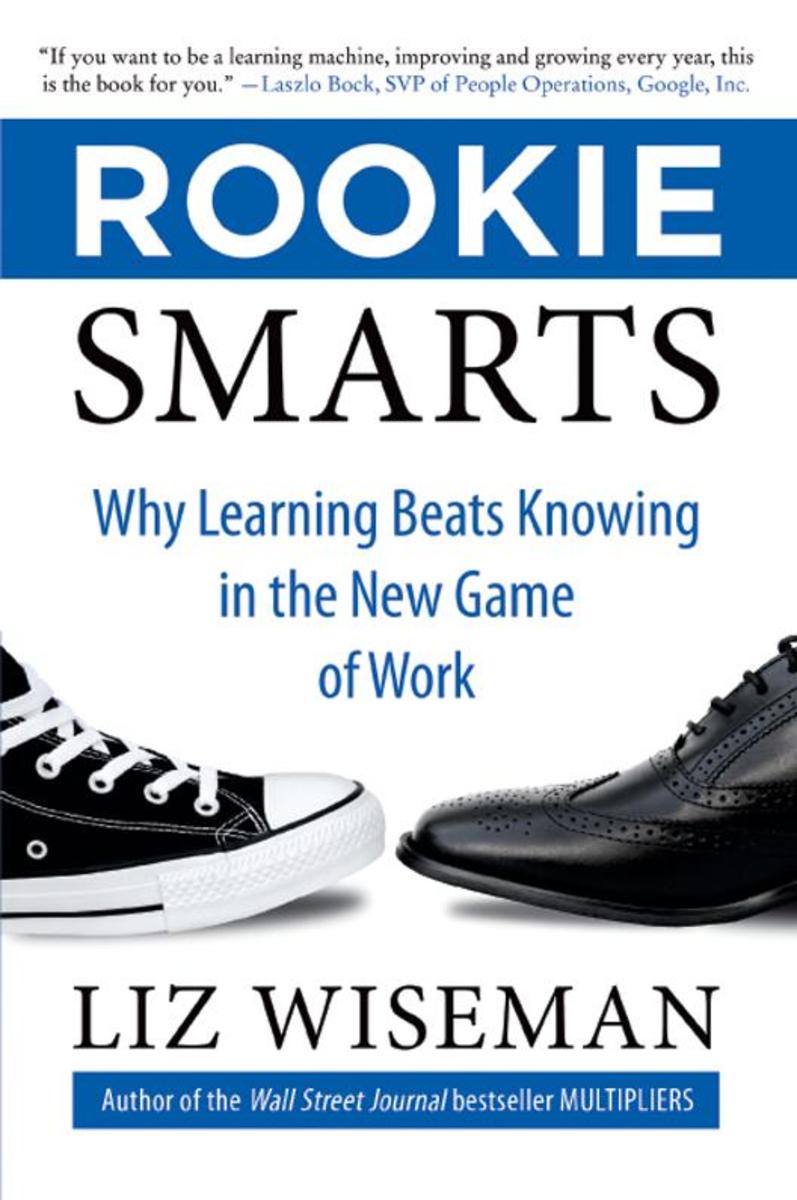
Rookie Smarts
¥162.76
This special digital edition of Rookie Smarts includes 13 videos of leadership expert Liz Wiseman outlining her ground-breaking principles and guiding viewers through exercises that bring fresh perspective, open minds to innovation, and jumpstart a spirit of naive inquiry and constant learning.Is it possible to be at your best even when you are underqualified or doing something for the first timeIs it still possible, even after decades of experience, to recapture the enthusiasm, curiosity, and fearlessness of youth to take on new challengesWith the right mindset with Rookie Smarts you can.In a rapidly changing world, experience can be a curse. Careers stall, innovation stops, and strategies grow stale. Being new, na?ve, and even clueless can be an asset. For today's knowledge workers, constant learning is more valuable than mastery.In this essential guide, leadership expert Liz Wiseman explains how to reclaim and cultivate the curious, flexible, youthful mindset called Rookie Smarts. Wiseman reveals the different modes of the rookie mindset that lead to success: Backpacker: Unencumbered, rookies are more open to new possibilities, ready to explore new terrain, and don't get stuck in yesterday's best practices. Hunter-Gatherer: Rookies seek out experts and return with ideas and resources to address the challenges they face. Firewalker: Lacking situational confidence, rookies take small, calculated steps, moving fast and seeking feedback to stay on track. Pioneer: Keeping things simple and focusing on meeting core needs, rookies improvise and work tirelessly while pushing boundaries. Rookie Smarts addresses the questions every experienced professional faces: Will my knowledge and skills become obsolete and irrelevantWill a young, inexperienced newcomer upend my company or meHow can I keep upThe answer is to stay fresh, keep learning, and know when to think like a rookie.
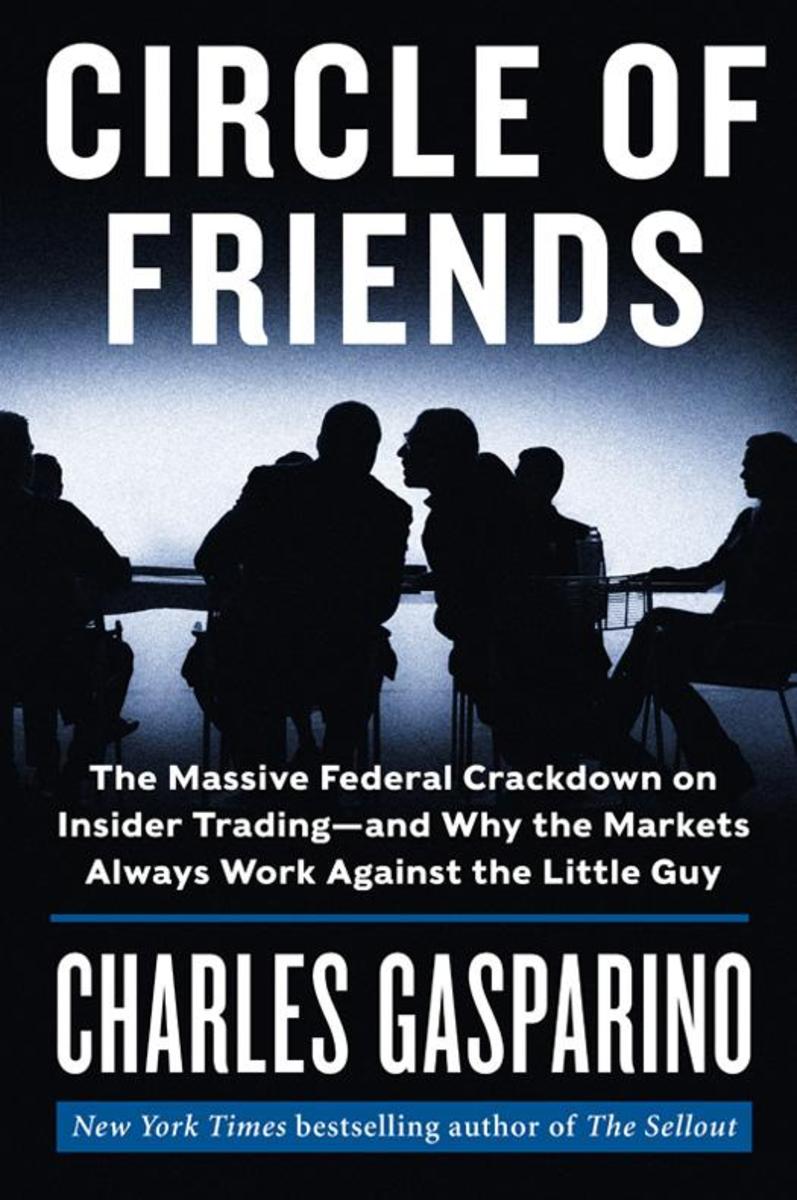
Circle of Friends
¥162.76
The bestselling author of The Sellout tells the explosive story of the government’s crackdown on insider-trading networks an investigation that has already racked up more than 60 convictions.In Circle of Friends, award-winning journalist Charles Gasparino one of Wall Street's most knowledgeable observers follows government investigators and prosecutors as they pursue one of the most aggressive and broad-reaching series of insider-trading cases in the nation's history. A richly textured page-turner of investigative journalism based on extensive reporting, Circle of Friends chronicles the massive federal crackdown that has already put some of the biggest names on Wall Street behind bars, including Raj Rajaratnam, founder of the Galleon Group, and Rajat Gupta, a former CEO of consulting giant McKinsey & Co. Other similarly sized targets are still waiting nervously, including the biggest one of them all financial impresario Steve Cohen of SAC Capital, the giant hedge fund that has confounded regulators for years by cranking out a steady stream of market-busting returns.Gasparino goes behind the headlines to reveal how the government makes its case, using every tool at its disposal and at great expense to taxpayers to supposedly make the investing world safer for average Americans. Gasparino asks why federal officials are so eager to prosecute these cases: What is the real damage to individualsDo average investors really careHe explores why insider trading is all the rage these days when the U.S. government has failed to bring a single criminal case against the culprits who caused the 2008 financial crisis. Circle of Friends is not a defense of insider trading, but it does offer an account of the politics of Wall Street crime fighting, revealing the behind-the-scenes ambitions that motivate headlines and burnish political careers. A riveting work of narrative nonfiction, as engrossing and explosive as fictional thrillers of the finest magnitude, Circle of Friends is a wakeup call to the investing public.
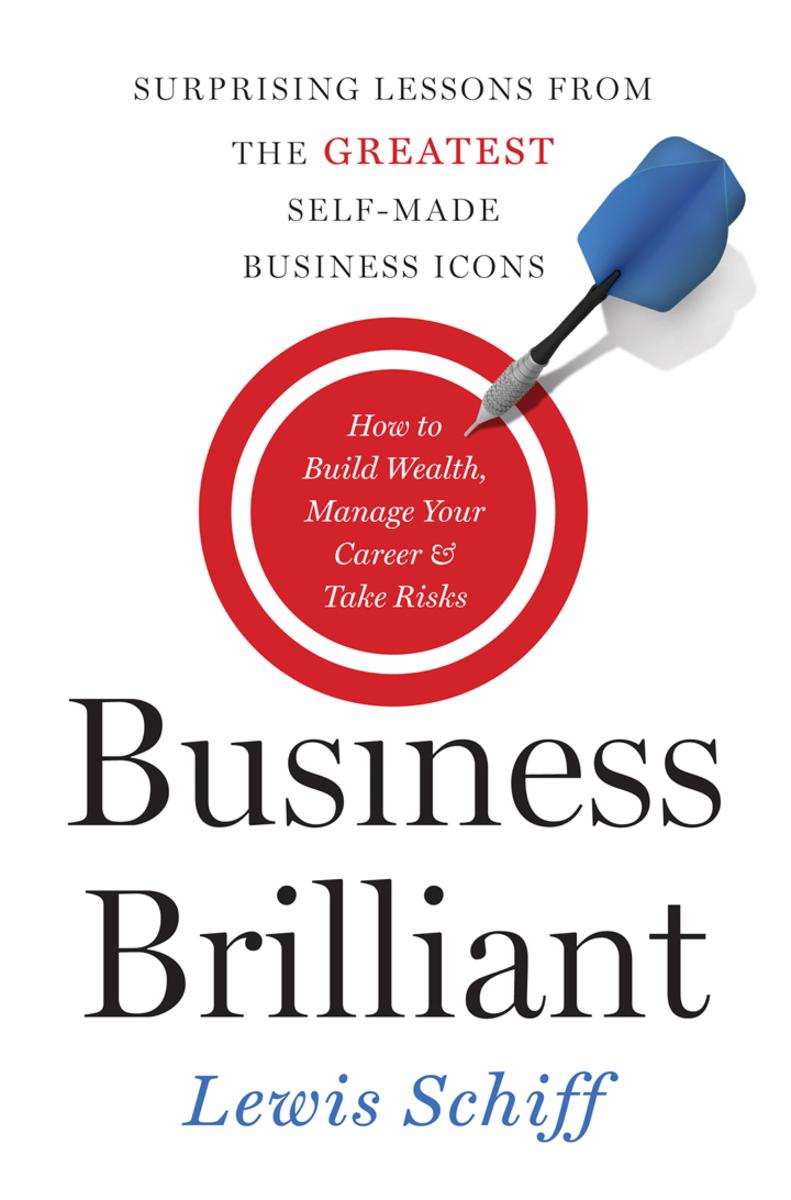
Business Brilliant
¥162.76
Ask a member of the middle class what it takes to become wealthy, and she'll tell you it takes a bold new idea. Tell that to a self-made millionaire, and he'll vehemently disagree. What explains the difference in mind-set between the self-made wealthy and the rest of usIt not what you think, as journalist and entrepreneur Lewis Schiff convincingly illustrates through groundbreaking research and compelling storytelling. For decades, the middle class has believed that the road to success meant working hard and playing by rules passed down from previous generations. But as the 2008 economic crisis has made clear, the old rules no longer apply. While household net worth has declined for most, self-made business leaders entrepreneurially minded individuals born into the middle class who have accumulated significant wealth have prospered. What makes these have-mores financially successful while the rest of us have never felt more uncertain about our professional and financial futuresIn Business Brilliant , Lewis Schiff reveals the eye-opening findings from a national survey of middle-class workers and self-made millionaires, offering practical guidance to show the rest of us what America self-made rich already know. Through his research, he holds a mirror to our most commonly held beliefs about success and then reveals the truth about how wealth is really created by surveying the truly wealthy. In doing so, he explodes the conventional wisdom and identifies the distinct principles practiced by individuals who may or may not be any smarter than the rest of the population but seem to understand instinctively how money is made. They don't employ business-as-usual practices; they adopt a Business Brilliant mind-set. The book illustrates how these self-made millionaires choose their careers, negotiate to win, and leverage social networks to accumulate their wealth. Schiff argues that it is the synergy behind seven uncommon practices, not serendipity or luck, that produces success. He offers a practical four-step program anyone can follow to position themselves to succeed more often and a roadmap to compare your own Business Brilliance to the executives and entrepreneurs who have successfully navigated our rapidly changing economy. While Business Brilliant doesn't promise to make you rich, it can help you achieve better results in your career and accumulate wealth faster.
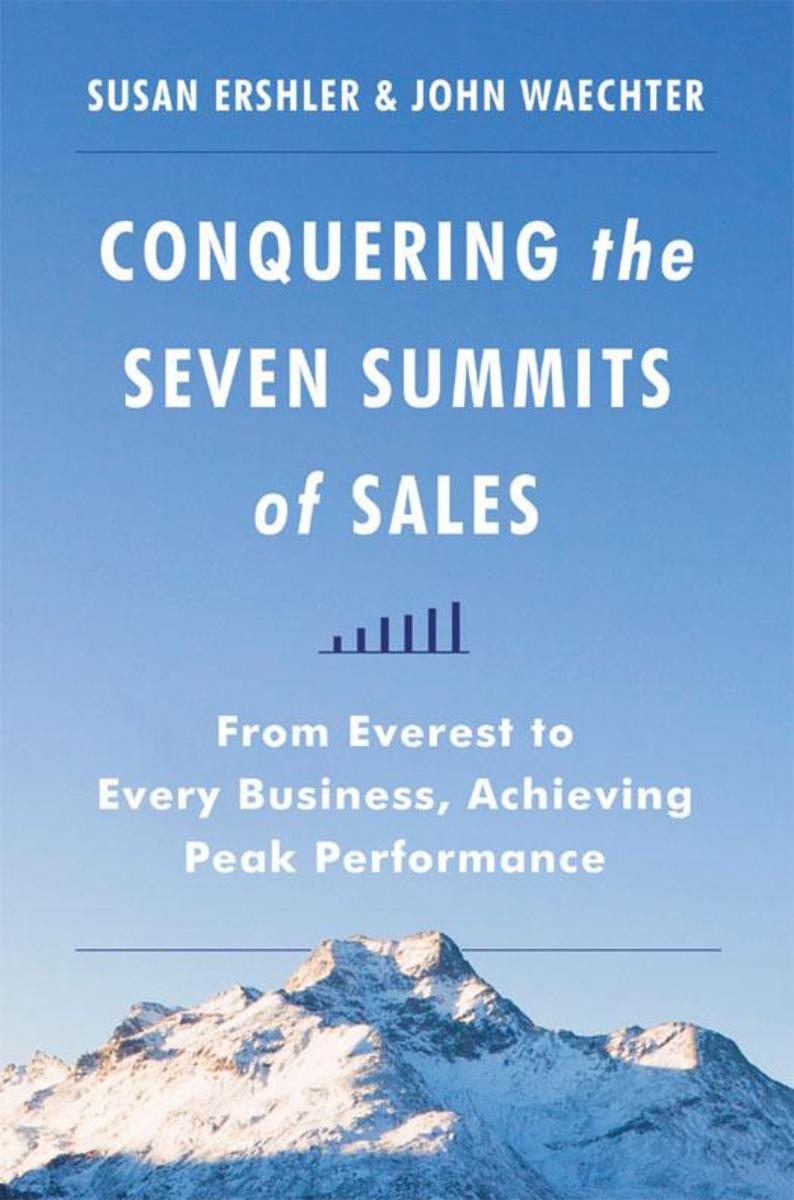
Conquering the Seven Summits of Sales
¥162.29
Two experts who have summited the tallest mountain on each of the seven continents and scaled the highest peaks in corporate sales and business examine what it takes to achieve success.In making the grueling journey to the top of Mount Everest, Susan Ershler and John Waechter joined the elite group of climbers who had conquered the Seven Summits the tallest mountains on each of the seven continents. This same determination has made them star performers in corporate sales and established them as business leaders. And both of them cherish the deep sense of satisfaction that comes from attaining a seemingly impossible goal through focus and persistence.In this unique guide, Susan and John draw on concrete experience to inspire sales professionals as well as all team members to overcome limitations and reach new heights of success, illustrating how anyone can achieve peak performance. They will show you how to define your goals clearly, commit to a vision, "choose the right sherpa" (build the right team), "travel light" (manage time), and "measure the mountain" (track progress).Weaving together stories from harrowing climbs and lessons of indomitable perseverance with actual tested methods for high achievement in sales, business, and life, Conquering the Seven Summits of Sales proves that anyone can overcome limitations and accomplish something real and meaningful in business and in life.

Hidden in Plain Sight
¥160.56
A global-innovation expert offers a new perspective on how consumers think and how to develop products and services that affect their everyday lives.Who are your next customers not just the ones you are serving today but the ones you'll need three, five, or ten years from nowHow do you figure out what goods and services will attract them in the future before your competitors do?According to Jan Chipchase whom Fast Company has called the James Bond of design research and Fortune has called the Indiana Jones of technology for the developing world most of the clues are right in front of us. The key is learning to see the ordinary in a revolutionary new way. As the executive creative director of Global Insights at frog, an award-winning global design and innovation company, Chipchase draws on everyday objects and patterns to show us how to see the world differently, from making a phone call to filling up a gas tank to ascertaining whether it's actually half-and-half you're pouring into your coffee. Chipchase is always looking for opportunities gaps, anomalies, and contradictions that will give his clients, some of the world's largest and most successful companies, a distinct competitive advantage, whether they're delivering the most low-tech bar of soap or the most high-tech wireless network.In Hidden in Plain Sight, Chipchase takes readers on his journeys around the globe and shares his methods for identifying the unmet needs of customers. No matter where he stops whether Cleveland or Kabul his goals are the same: to spot and decode the routines of daily life and to help readers use the very same tools that he and his team use to see, and capitalize upon, what is hidden in plain sight today to create businesses tomorrow.

FIRE
¥160.56
Why do some projects deliver under budget and ahead of schedule, while others cost more and take longer than expectedMore important, which products work better: the quick and thrifty or the slow and expensive?In a story-filled blend of quirky pop culture and practical engineering insight, Dan Ward's F.I.R.E. answers those questions and more. Ward's extensive research and firsthand experience show how the world's top technologists consistently deliver best-in-class results on shoestring budgets and cannonball schedules, and using skeleton crews.This remarkable book will make you laugh, make you think, and equip you to leverage the power of constraints. Discover the secrets of F.I.R.E. and learn how to:Build strategies for speed that enhance accountability and ensure your products are well aligned with the market's needs.Design your organizations, products, and processes with thrift in mind, solving problems with intellectual capital, not financial capital.Unleash the power of small budgets and small teams, using short schedules, short meetings, and short documents.Streamline your designs and cut through unnecessary, unproductive layers of bureaucracy.But this is not just a book about how to win. With unflinching candor, Ward shows how the F.I.R.E. method, even when followed wisely and well, can result in a flop. Taking a deep look at several negative outcomes, he shows how to make failures optimal rather than epic.F.I.R.E. provides strategic concepts for leaders, decision-making principles for managers, and practical tools for people working on anything from spacecraft and fighter jets to websites and children's toys. Technology professionals and curious amateurs alike will come away with a deeper understanding of effective product design. Plus, there's a funny story about a dishwasher that just may change the way you buy major appliances.
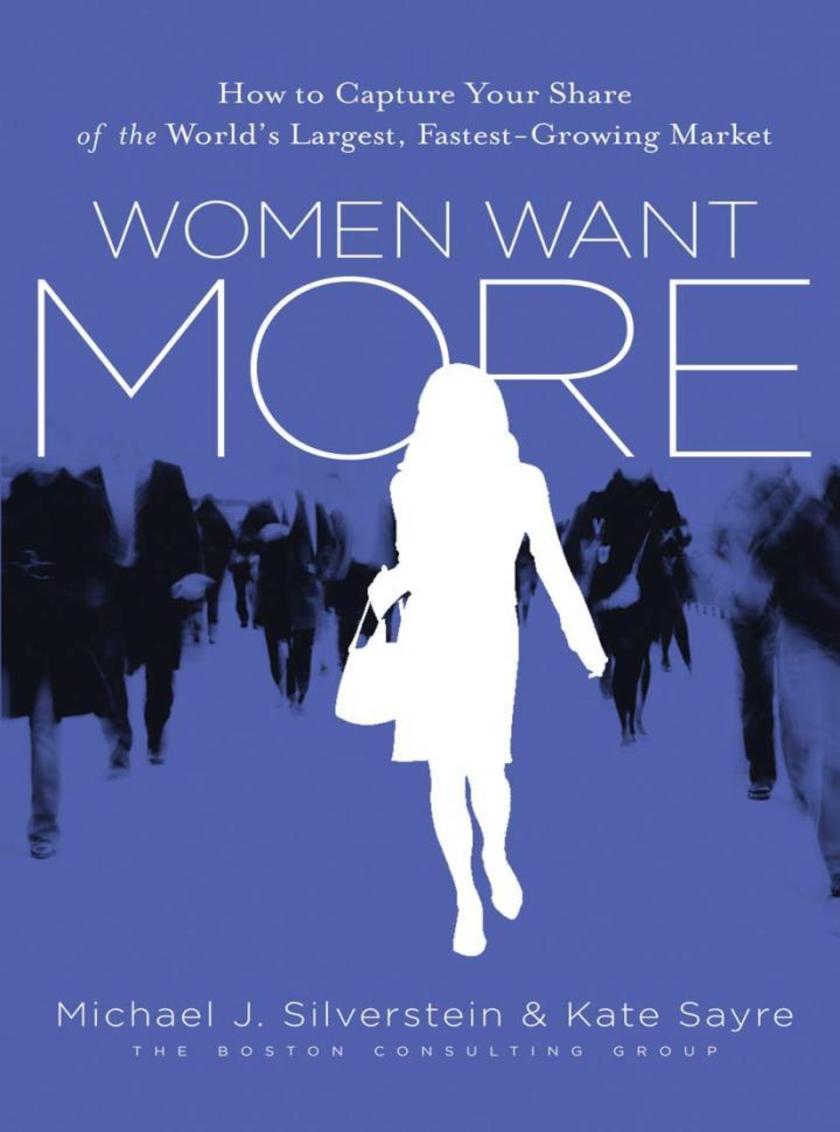
Women Want More
¥157.15
Haven't women gotten everything they wantEconomic powerSocial influenceBusiness cloutYes, but it turns out that these fantastic gains have come at a heavy price, as consumer goods experts Michael J. Silverstein and Kate Sayre discovered in an unprecedented study of 12,000 women in forty countries.That relentless upward climb has left women feeling stressed out, time starved, and overburdened. As a result, they look to products and services that will help them claw back time, juggle multiple roles, and capture a few moments of enjoyment.Women want more much more, in every category of goods and services. And no matter what their age or economic situation or where they live in the world, women will spend trillions of dollars over the next decade on the brands that truly deliver: Home-cleaning products that enable women to do in an hour what used to take a day Financial-services products that recognize that women control half the United States' wealth Food products that help keep the whole family happy and healthy Health care services designed for working-women's hectic schedules In the coming years, women's influence will be so enormous that it will not only help bring us out of the economic downturn but also create one of the most dramatic market opportunities of our lifetime bigger than the rise of China and India; more sustainable than any bailout package.Through quantitative data, profiles of individual women, and stories of winning companies, Women Want More provides business leaders with the understanding and practices they need to capture their share of the rising "female economy."

Force of Nature
¥157.15
What happens when a renowned river guide teams up with the CEO of one of the largest and least Earth-friendly corporations in the worldWhen it's former Wal-Mart CEO H. Lee Scott and white-water expert turned sustainability consultant Jib Ellison, the result is nothing less than a green business revolution.Wal-Mart long the target of local businesses, labor advocates, and environmentalists who deplore its outsourced, big-box methods has embraced an unprecedented green makeover, which is now spreading worldwide. The retail giant that rose from Sam Walton's Ozarks dime store is leveraging the power of 200 million weekly customers to drive waste, toxics, and carbon emissions out of its stores and products. Neither an act of charity nor an empty greenwash, Wal-Mart's green move reflects its river guide's simple, compelling philosophy: that the most sustainable, clean, energy-efficient, and waste-free company will beat its competitors every time. Not just in some distant, utopian future but today. From energy conservation, recycling, and hybrid trucks to reduced packaging and partnerships with environmentalists it once met only in court, Wal-Mart has used sustainability to boost its bottom line even in a tough economy belying the age-old claim that going green kills jobs and profits. Now the global apparel business, the American dairy industry, big agriculture, and even Wall Street are following Wal-Mart's lead, along with the 100,000 manufacturers whose products must become more sustainable to remain on Wal-Mart's shelves. Here Pulitzer Prize winner and bestselling author Edward Humes charts the course of this unlikely second industrial revolution, in which corporate titans who once believed profit and planet must be at odds are learning that the best business just may be a force of nature.
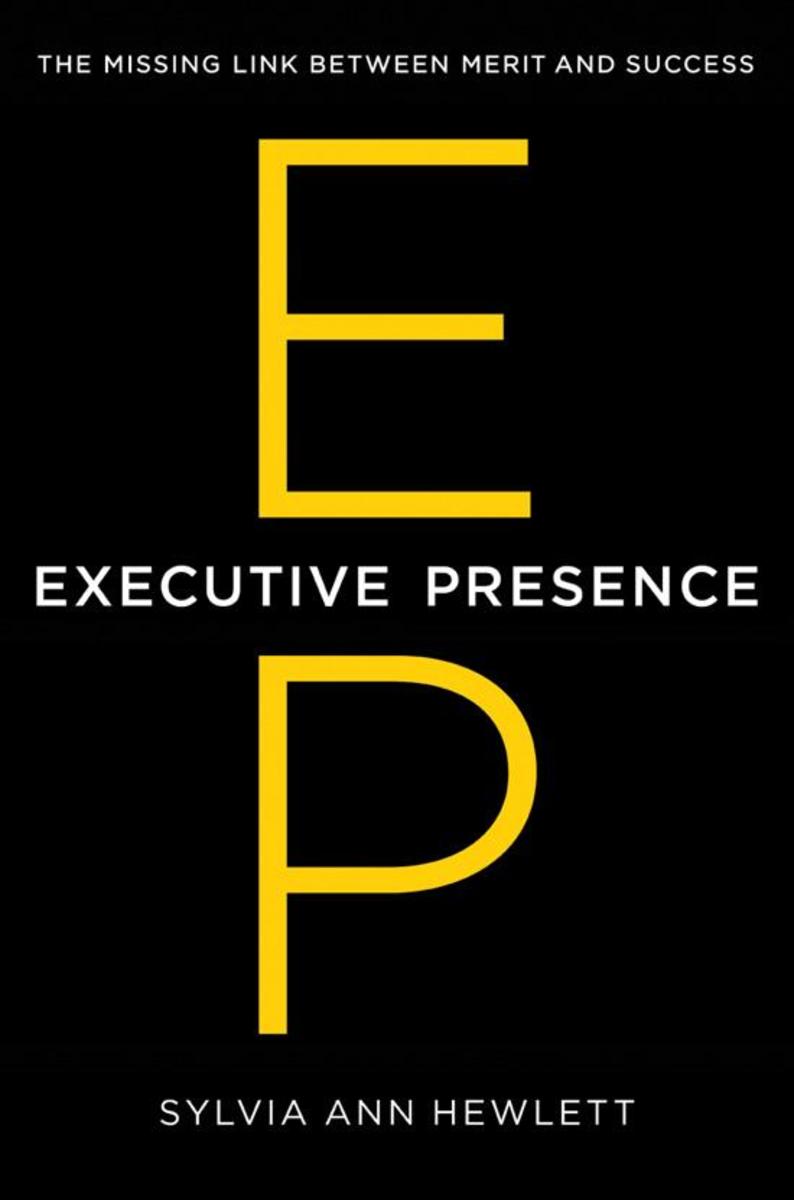
Executive Presence
¥157.15
Do you exude confidence and credibilityCan you command a roomSylvia Ann Hewlett, one of the world's most influential business thinkers, cracks the code of Executive Presence (EP) for men and women intent on winning the next plum assignment and doing something extraordinary with their lives.You might have the qualifications to be considered for your dream job, but you won't get far unless you can signal that you're "leadership material" and that you "have what it takes." Professionals are judged on presence as well as on performance. Using a wealth of hard data including a new nationwide survey and dozens of focus groups Hewlett reveals EP to be a dynamic mix of three things: how you act (gravitas), how you speak (communication), and how you look (appearance). She also draws on in-depth interviews with a wide selection of admired leaders to reveal how they embody and deploy key elements of EP.This book is immensely practical. Hewlett teases out tactics that can help you raise your game and close the gap between merit and success. She offers the unvarnished advice you won't get from supportive friends and tackles head-on such touchy subjects as too-tight clothing and too-shrill voices. She shows how the standards for EP vary for men, women, multicultural, and LGBT employees, and she shares how to get meaningful feedback from politically correct bosses intent on avoiding the real issues.The good news is that EP is eminently teachable. You can learn how to "show teeth" while remaining likable, and you can teach yourself how to dress appropriately while staying true to yourself. You don't have to be born with the voice of James Earl Jones or the looks of Angelina Jolie to hurdle the EP bar. With hard facts and vivid examples, Hewlett shows you how to ace EP and fully realize your unique potential no matter who you are, no matter where you work.
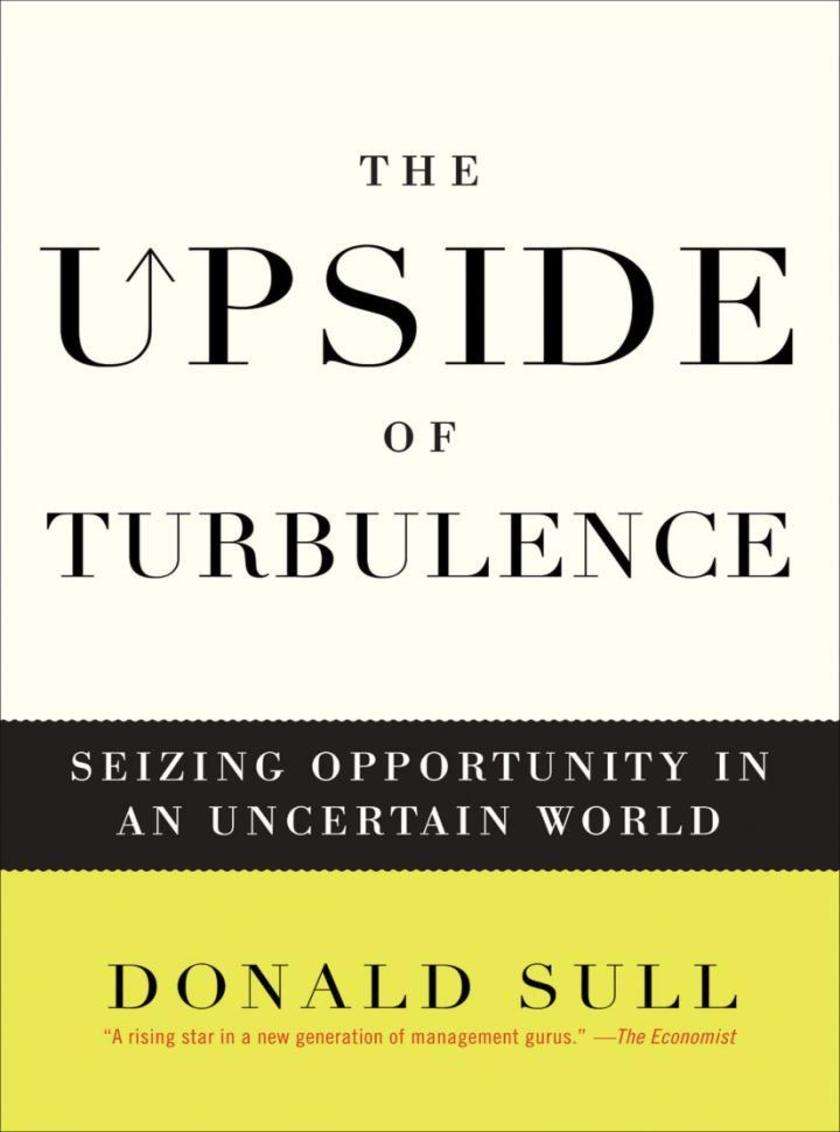
The Upside of Turbulence
¥157.15
A provocative user's guide to a world where the only thing that doesn't change is change itself "Before I die," Albert Einstein once said, "I hope someone will clarify quantum physics for me. After I die, I hope God will explain turbulence to me." Einstein might have been more confused today: Turbulence, in all its manifestations, is on the rise. Financial markets gyrate. Commodity prices zig and zag. New technologies disrupt long-standing businesses and entire industries. Scientific discoveries overturn historical truisms. Dirty bombs and pension busts, natural disasters and flu pandemics, add to the tumult. We live in a world beset by turbulence.We often respond to turbulence by accelerating activities that worked in the past. We lapse into inertia when we should adapt with agility, and we cling to rigid dogmas when we should improvise. But throughout history, volatility has not only dethroned incumbent leaders, it has also created untold possibilities to create economic value. Turbulence has an upside, and companies that seize the opportunities arising out of seething markets will become tomorrow's champions. Based on more than a decade of research, The Upside of Turbulence draws lessons from companies that have consistently spotted and exploited opportunities that rivals have missed. The book explores realms ranging from improvisational comedy to the U.S. Marine Corp's combat doctrine. The result is a series of provocative insights that defy conventional wisdom. The book also introduces practical tools, which have been field-tested by executives around the world, to wrestle triumph out of turmoil.
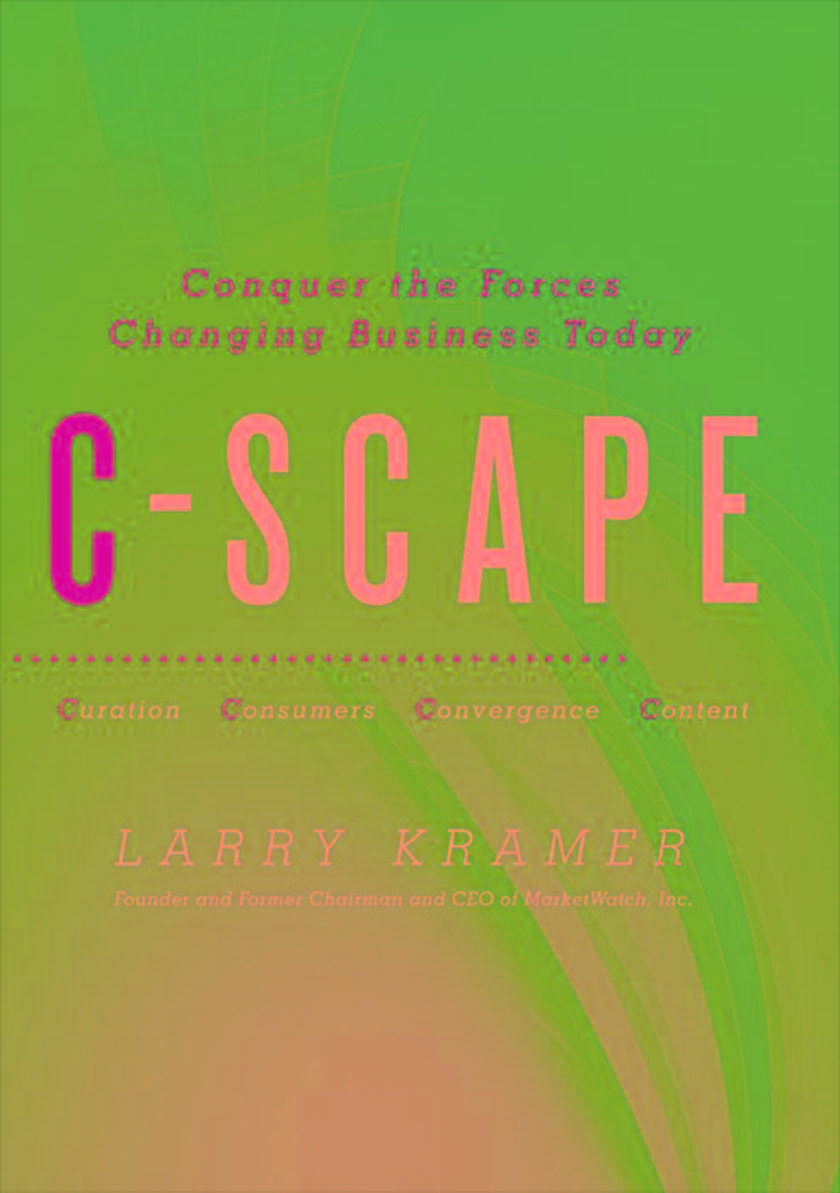
C-Scape
¥157.15
A bold, pioneering book that shows how businesses can survive and thrive in the digital media revolution Not so long ago, the business landscape was easier to chart. The routes connecting customers, companies, products, and services were predictable, reliable, and understood. Today, that landscape has been upended, and in its place a "C-Scape" has emerged a world where consumers, not producers and marketers, make the choices; where content, not distribution, is king; where curation becomes a primary currency of value; and where convergence continues to revolutionize every part of every business. In C-Scape, Larry Kramer leads the reader through this new, evolving world where the challenges are daunting but the opportunities are huge.A seasoned journalist turned superstar digital entrepreneur and venture capitalist, Kramer learned early on to survive and overcome the forces that are remaking the business landscape: the digital media revolution. Why mediaEvery aspect of every business is increasingly carried out through the media. From advertising and marketing to sales and customer service, from product design to manufacturing, everything that happens anywhere in business is ever more likely to happen on a screen or handheld device. That means any business could fall to the same threats facing the newspaper business and the music industry unless that business learns to navigate the four Cs. Kramer's explanation of this new landscape is a revelation; his visionary advice is both crucial and urgent. No leader, whether at the helm of a small business or a conglomerate, will read this book without seeing the business world anew and finding practical ways to put this book's four powerful precepts immediately to work.
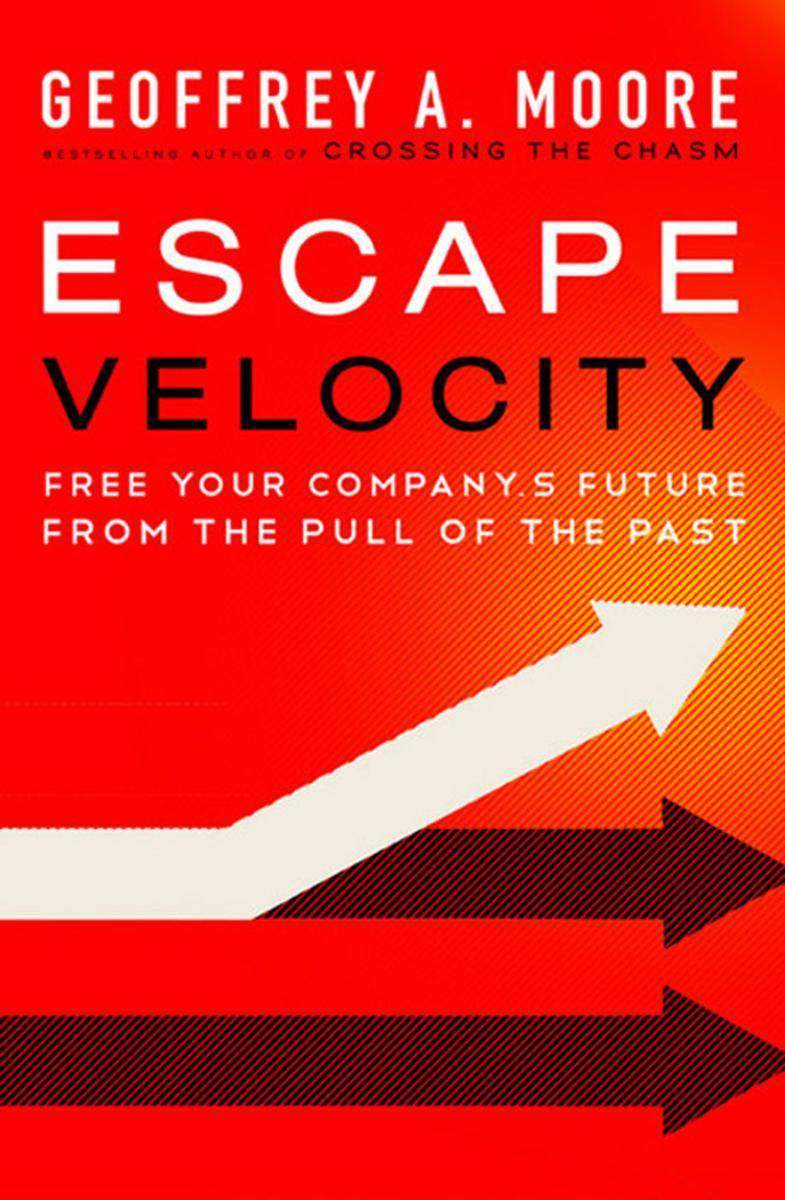
Escape Velocity
¥157.15
From the world leading high-tech strategist comes the definitive road map to help established companies create next-generation growth. Geoffrey Moore now-classic Crossing the Chasm became a must-read book by presenting an innovative framework to address the make-or-break obstacle facing all high-tech companies: how to gain market share from early adopters and from mainstream consumers. Based on twenty years’ experience advising the top leaders of many of the world most successful enterprises, Moore Escape Velocity offers a pragmatic plan to engage the most critical challenge that established enterprises face in the twenty-first-century economy: how to move beyond past success and drive next-generation growth from new lines of business. As he worked with senior management teams, Moore repeatedly found that executives were trapped by short-term performance-based compensation schemes. The result was critical decision-makers overweighting their legacy commitments, an embarrassingly low success rate in new-product launches, and a widespread failure to sustain any kind of next-generation business at scale. In Escape Velocity , Moore presents a cogent strategy for generating future growth within an established enterprise. Organized around a hierarchy of powers category power, company power, market power, offer power, and execution power this insightful work shows how each level of power can be orchestrated to achieve overall success. Moore explains how to use mergers and acquisitions as well as organic innovation to systematically migrate an enterprise portfolio out of lower-growth and into higher-growth categories; how to reallocate resources across an enterprise in deliberately asymmetrical ways to create a powerful and sustainable foundation for a long-term competitive advantage; how to leverage target-market initiatives as accelerants to growth and as stepping-stones to broad overall category success; how to create unmatchable offerings by being swift to neutralize competitors’ innovations and laser-focused on driving in-house innovations to make a business impervious to competitors; how to fundamentally change the execution cadence of an organization, pushing change from innovation to broad deployment, creating an irreversible tipping point along the way. Drawing from thousands of hours spent face-to-face with CEOs and their teams, Moore presents case examples and best practices. While his experience is deeply rooted in the high-tech sector, his models and techniques apply well beyond this arena, including to the public sector. At a time when the world is looking to established enterprises for growth and stability, Moore analysis is penetrating and his pre*ions are right on the mark. Escape Velocity gives executives and their teams a practical way forward to take advantage of the opportunities amid industry and economic disruptions.
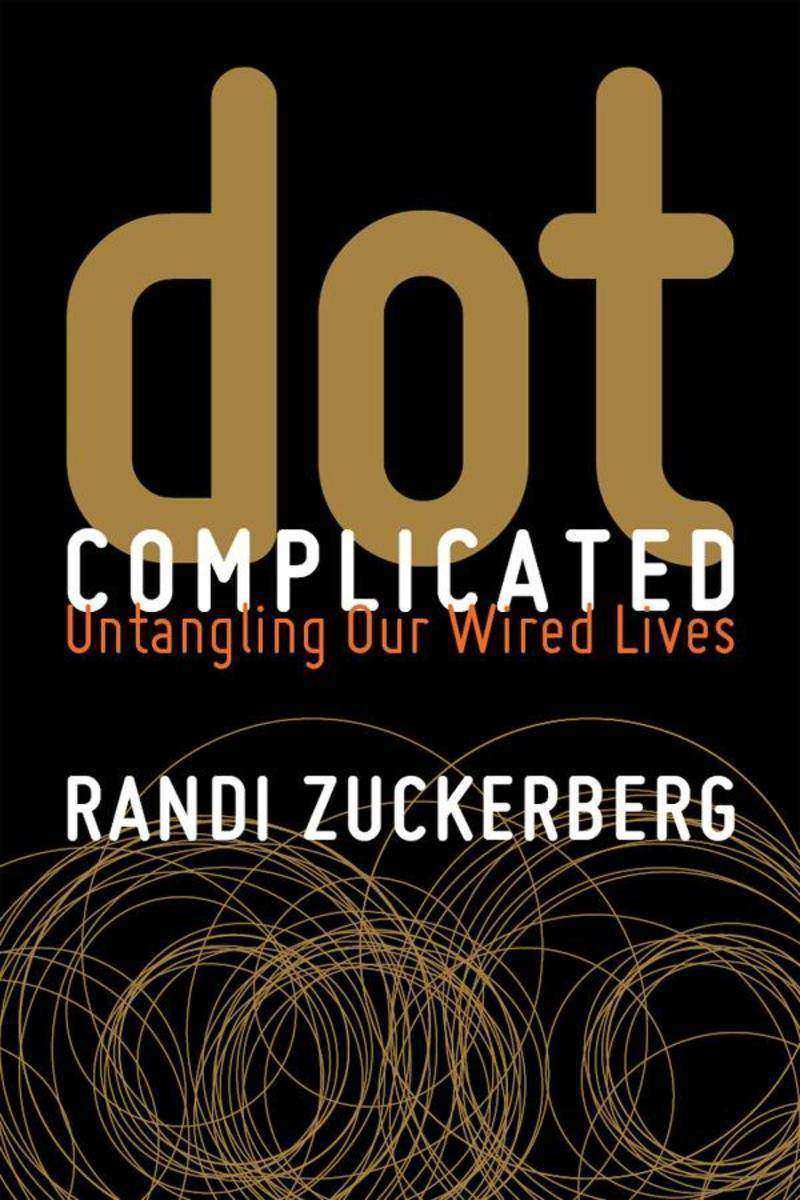
Dot Complicated
¥156.69
From Randi Zuckerberg, social media and technology expert and former marketing executive at Facebook, comes a welcome, essential guide to understanding social media and technology and how they influence and inform our lives online and off.Technology and social media have changed, enhanced, and complicated every facet of our lives from how we interact with our friends to how we elect presidents, from how we manage our careers to how we support important causes, from how we find love to how we raise our children.The technology revolution is not going away. We can't hide from it or pretend that it's not changing our lives in a thousand different ways. So how do we dealIn Dot Complicated, Randi Zuckerberg shows us. Through first hand accounts of her time at Facebook and beyond, where Zuckerberg witnessed this remarkable shift, she details the opportunities and obstacles, problems and solutions, to this new online reality. In the process, she establishes rules to bring some much-needed order and clarity to our connected, complicated, and constantly changing lives online.The Internet, social networks, and smartphones,Zuckerberg writes, have given us amazing new tools and ways of communicating, collaborating, and living with one another. We can use new technology to understand and solve some very old challenges that individuals and communities around the world have faced since long before Facebook, or anything like it, existed.Invaluable, timely, and engaging, Dot Complicated reveals how to make it through your life online in one piece from the etiquette of unfriending and the power of crowdsourcing to the perils of photo tags and the importance of teaching your kids how to be tech savvy.
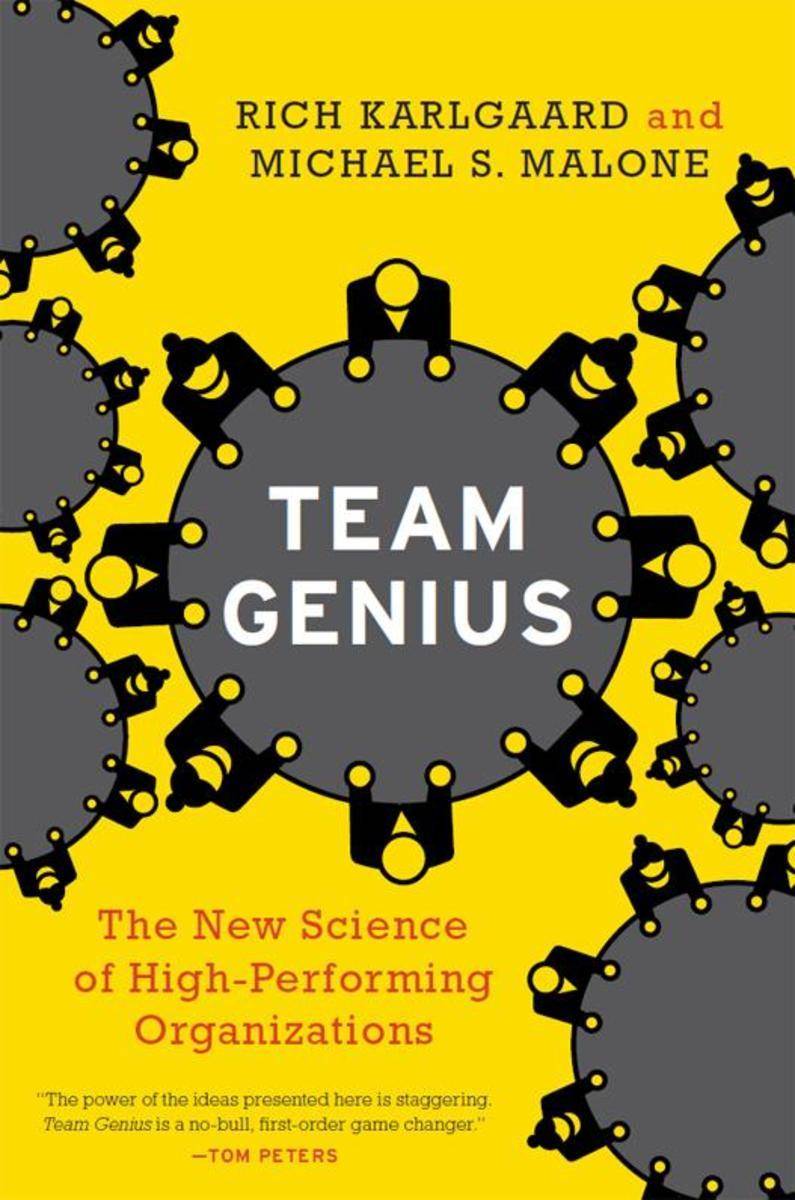
Team Genius
¥156.69
A groundbreaking book that sheds new light on the vital importance of teams as the fundamental unit of organization and competition in the global economy. Teams—we depend on them for both our professional success and our personal happiness. But isn't it odd how little scrutiny we give themThe teams that make up our lives are created mostly by luck, happenstance, or circumstance—but rarely by design. In trivial matters—say, a bowling team, the leadership of a neighborhood group, or a holiday party committee—success by serendipity is already risky enough. But when it comes to actions by fast-moving start-ups, major corporations, nonprofit institutions, and governments, leaving things to chance can be downright dangerous. Offering vivid reports of the latest scientific research, compelling case studies, and great storytelling, Team Genius shows managers and executives that the planning, design, and management of great teams no longer have to be a black art. It explores solutions to essential questions that could spell the difference between success and obsolescence. Do you know how to reorganize your subpar teams to turn them into top performersCan you identify which of the top-performing teams in your company are reaching the end of their life spanDo you have the courage to shut them downDo you know how to create a replacement team that will be just as effective—without losing time or damaging moraleAnd, most important, are your teams the right size for the jobThroughout, Rich Karlgaard and Michael S. Malone share insights and real-life examples gleaned from their careers as journalists, analysts, investors, and globetrotting entrepreneurs, meeting successful teams and team leaders to reveal some "new truths": The right team size is usually one fewer person than what managers think they need. The greatest question facing good teams is not how to succeed, but how to die. Good "chemistry" often makes for the least effective teams. Cognitive diversity yields the highest performance gains—but only if you understand what it is. How to find the "bliss point" in team intimacy—and become three times more productive. How to identify destructive team members before they do harm. Why small teams are 40 percent more likely to create a successful breakthrough than a solo genius is. Why groups of 7 (± 2), 150, and 1,500 are magic sizes for teams. Eye-opening, grounded, and essential, Team Genius is the next big idea to revolutionize business.
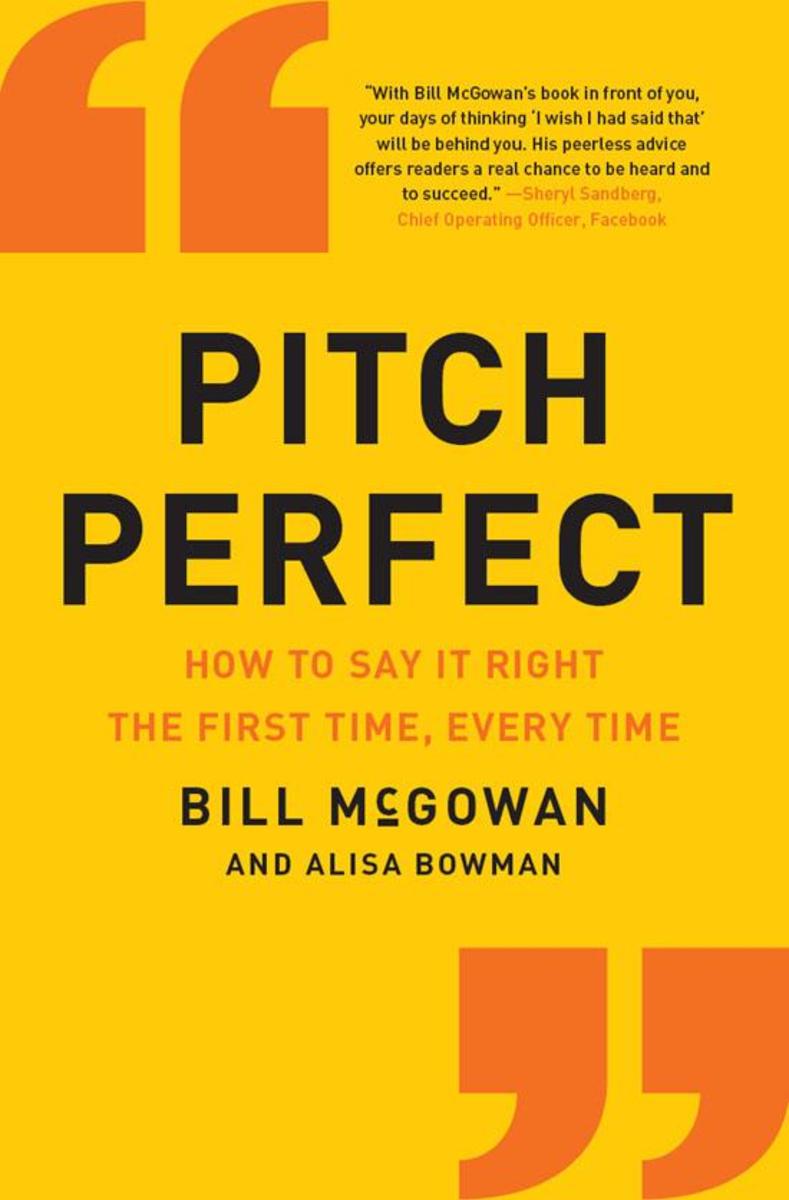
Pitch Perfect
¥155.02
The media coach and Emmy Award-winning correspondent Bill McGowan shares his secrets of pitch-perfect communications, showing readers how to communicate with confidence.During the pivotal moments of our lives, results are often determined not only by our actions but by our words as well. Saying the right thing the right way can make the difference between sealing the deal or losing the account, advancing your career or suffering a demotion. During these moments, it's important to be pitch perfect to use precisely the right tone to convey the right message to the right person at the right time. Such pitch-perfect moments are crucial in our personal and professional journeys. In Pitch Perfect, the renowned media coach Bill McGowan shows you how to craft just the right message. Along the way, McGowan lays out his Seven Principles of Persuasion, including: The Scorsese Principle: Hold your audience's attention with visual images. Direct the film that plays in your listener's mind. The No-Tailgating Principle: Avoid verbal fender-benders and career-wrecking moments by maintaining a safe talking distance. When in doubt, stop talking and listen. The Pasta-Sauce Principle: Cure boredom by boiling down your message, making it as rich and brief as possible. In Pitch Perfect, you'll learn how to overcome all these communication pitfalls. The Seven Principles of Persuasion are as easy to learn, implement, and master as they are effective. The right language both verbal and nonverbal can make you more confident, persuasive, and certain. It can stir people to listen closely to your every word and to remember you long after you've left the room.
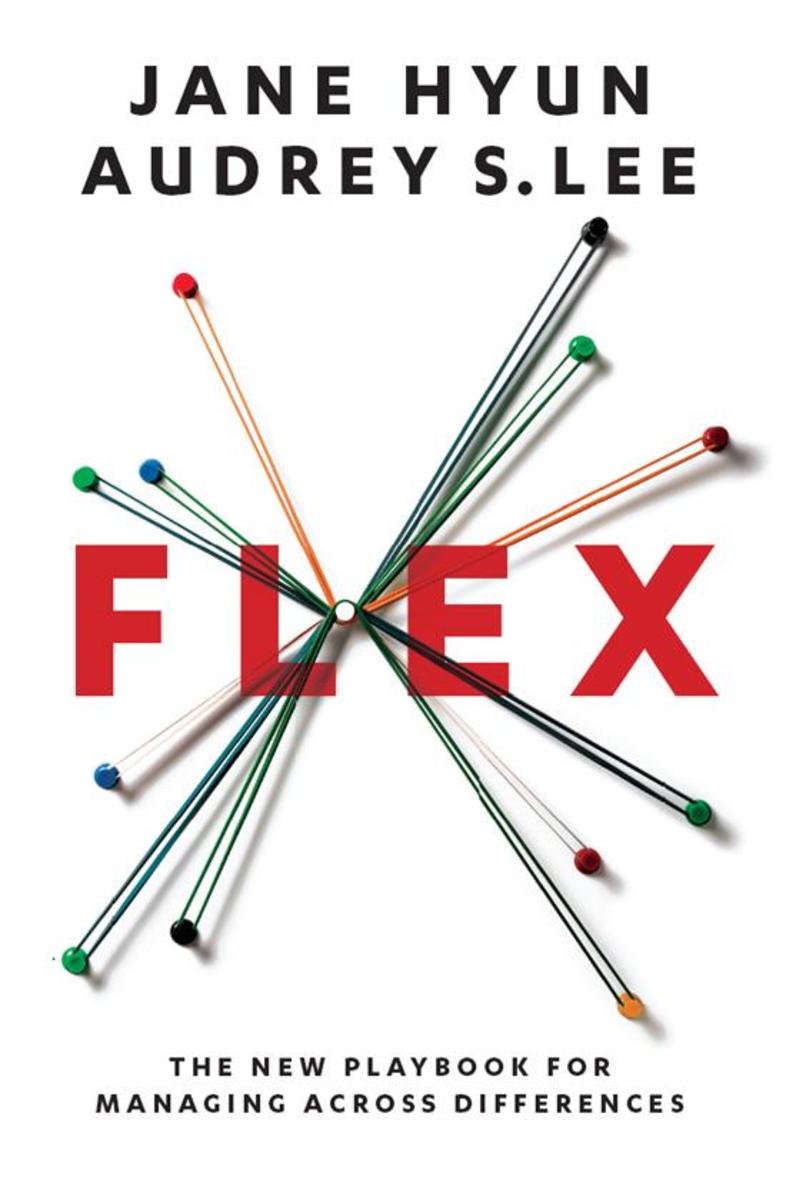
Flex
¥155.02
The workplace around the world is changing growing increasingly multicultural, female, and younger. Experts often tell CEOs and managers what not to do, and corporate diversity programs can often appear to be like defensive measures against lawsuits and harassment charges. While technology has connected all of us as a global workforce, it has not equipped us with the capability to interact genuinely with people. In order to be successful in this new global business environment, we need to rethink the way we lead others.Flex offers a new approach a proactive strategy for managers to understand and leverage difference effectively in this new global economy.Flex shows managers how to understand the power gap the social distance between you and those in the workplace of different cultures, ages, and gender; stretch your management style and bridge the gap with more effective communication and feedback tools; and multiply the effect by teaching these skills to others and closing the power gap with clients, customers, and partners to create innovative solutions. Creating flex in a company's management style will affect all aspects of developing existing leaders, attracting future talent, and building relationships with customers in this competitive marketplace. Flex shows you how.




 购物车
购物车 个人中心
个人中心



